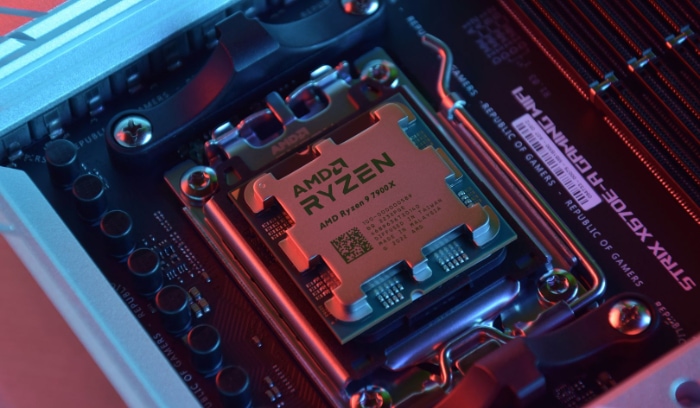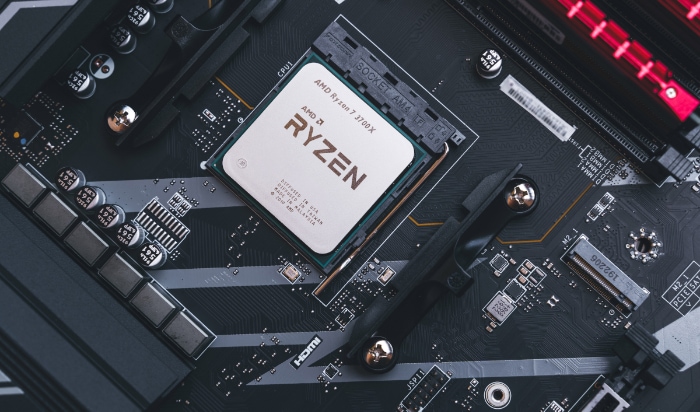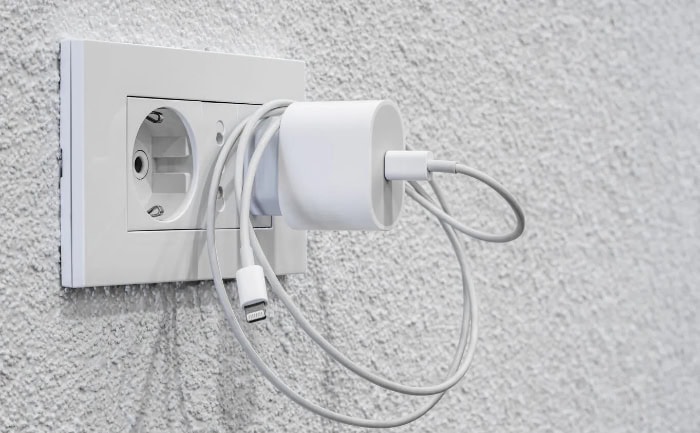How Many CPU Cores Do You Need for Gaming?

Gaming enthusiasts often find themselves at a crossroads when choosing the ideal components for their PC build. Central to this decision-making process is the CPU, specifically the number of cores it boasts.
This choice is far from trivial; it can significantly impact your gaming experience. Today’s games are complex masterpieces, demanding not just high-quality graphics but also efficient processing power to run smoothly.
Understanding CPU Cores
CPU cores are the heart of any gaming computer, but what are they exactly, and how do they impact your gaming experience? Here, we break down the concept of CPU cores, helping you grasp their role in gaming performance.
What are CPU Cores?
A CPU core is essentially a processor within the processor. Modern CPUs can have multiple cores, allowing them to perform several tasks simultaneously.
Each core can work on different tasks or work together on a single task, depending on the needs of the software. In gaming, more cores can mean better performance, but this depends on how the game is programmed.
Physical Cores vs. Virtual Cores (Hyper-Threading)
Not all cores are created equal. Physical cores are actual hardware units, whereas virtual cores, created through a process called hyper-threading, are software-based.
Hyper-threading allows a single physical core to handle two threads (units of computational work) at once, essentially mimicking two cores. While useful, virtual cores are not as powerful as physical ones but can still boost performance in multi-threaded tasks.
CPU Cores and Gaming Performance
The number of cores in a CPU affects how it handles gaming. Games that are designed to use multiple cores can benefit significantly from a CPU with more cores.
However, not all games are optimized for multi-core use. Some rely more on the processing power (clock speed) of individual cores. Knowing the types of games you play and their core usage can guide you in choosing the right CPU.
Core Count vs. Core Quality
More cores don’t always mean better performance. The efficiency and architecture of a CPU core are also crucial.
Advanced cores with higher clock speeds and newer technologies can outperform a greater number of older, slower cores. Balancing core count with core quality is key to finding the best CPU for your gaming needs.
Game Development and Core Utilization
Game developers are constantly pushing the boundaries of what’s possible in gaming, and this includes how they utilize CPU cores. As games become more complex, the trend is shifting towards better multi-core optimization.
Understanding this trend helps in anticipating the kind of CPU you’ll need for future gaming titles.
The Role of CPU Cores in Different Types of Games
The impact of CPU cores on gaming varies widely across different game genres. Each genre utilizes CPU cores in unique ways, influencing performance and gameplay experience.
Strategy Games and CPU Core Usage
Strategy games, particularly large-scale ones like real-time strategy (RTS) and turn-based strategy (TBS), often benefit from multiple CPU cores. These games involve complex AI, vast maps, and numerous units, requiring substantial computational power.
A CPU with more cores can handle these simultaneous processes more effectively, leading to smoother gameplay.
First-Person Shooters (FPS) and Core Dependence
First-person shooters are known for their fast-paced action and high frame rates. While GPU performance is crucial in FPS games, the CPU, particularly its core speed, also plays a significant role.
Most FPS games rely heavily on single-threaded performance, meaning they benefit more from faster cores than from a higher number of cores.
Open-World Games and Core Optimization
Open-world games offer vast, explorable environments and dynamic content, which can be taxing on the CPU. These games generally benefit from a higher number of cores.
More cores allow for better handling of various simultaneous in-game elements like NPC actions, physics calculations, and real-time environmental changes.
Simulation Games and Multi-Core Efficiency
Simulation games, including city builders and life simulators, often involve complex systems running concurrently. These games can take advantage of multiple CPU cores to manage various aspects of the game world in real time, enhancing the depth and fluidity of the simulation.
Adventure and Role-Playing Games (RPGs)
Adventure and RPGs often balance story-driven elements with real-time action, requiring both strong single-core and multi-core performance. A balanced CPU that offers both high core speed and a reasonable number of cores can provide an optimal experience in these immersive, narrative-driven games.
Balancing CPU Cores with Other Components

Choosing the right CPU for gaming isn’t just about the number of cores. It’s also about how these cores harmonize with other components of your system.
A well-balanced gaming PC ensures that the CPU, GPU, RAM, and storage work together efficiently, providing a seamless gaming experience.
CPU and GPU Synergy
The relationship between the CPU and GPU (Graphics Processing Unit) is crucial in gaming. A powerful GPU paired with a CPU that doesn’t have enough cores or speed can lead to a bottleneck, where the GPU waits for the CPU to finish processing before it can render the next frame.
Conversely, an overly powerful CPU with a weak GPU won’t deliver its full potential in graphics-intensive games. Finding the right match is key.
RAM: The Supporting Player
RAM (Random Access Memory) plays a vital role in how quickly data can be accessed and used by the CPU. Insufficient RAM can cause a CPU, regardless of its core count, to underperform as it struggles with data bottlenecks.
For gaming, 16GB of RAM is typically a good starting point, but more demanding games and multitasking can benefit from 32GB or more.
Storage Speed and Game Load Times
While storage doesn’t directly affect the processing power of the CPU, faster storage (like SSDs) can significantly reduce game load times and improve overall system responsiveness. This is particularly important in games with large open worlds or those that frequently load new environments.
Future-Proofing Your Gaming Setup
As technology advances, so does the world of gaming. Future-proofing your gaming setup means making choices today that will keep your system relevant and capable of handling new games for years to come.
Choosing a Future-Ready CPU
When selecting a CPU, consider opting for one with a higher core count and strong single-core performance. As games continue to evolve, they are likely to utilize more cores effectively.
A CPU with a good balance of core count and speed ensures that it can handle both current and future games that may require more processing power.
Importance of Upgradability
Choose a motherboard that allows for future upgrades. This includes support for higher-speed RAM, additional storage options, and compatibility with future CPU generations.
Upgradability ensures that your system can evolve with changing gaming demands without needing a complete overhaul.
Investing in Quality Components
While it might be tempting to save money on certain components, investing in quality parts can extend the life of your gaming setup. High-quality components are generally more durable and offer better performance, reducing the need for frequent replacements.
Keeping an Eye on Technological Trends
Stay informed about the latest developments in gaming technology. This includes not just hardware advancements, but also software trends, like new game engines and programming techniques.
Understanding these trends can guide you in making decisions that will keep your gaming setup relevant.
Balancing Performance with Budget
While it’s important to plan for the future, it’s also crucial to balance performance needs with your budget. Overspending on excessively high-end components won’t always provide a proportional increase in longevity.
Aim for a setup that offers a good balance between current performance and potential future needs within your budget.
Recommendations for Gamers
When it comes to building or upgrading a gaming PC, the choices can be overwhelming. The right CPU is a critical component that can significantly affect your gaming experience.
For Budget-Conscious Gamers
If you’re gaming on a budget, look for CPUs that offer the best performance per dollar. Prioritize CPUs with a good balance of core count and clock speed, but don’t overpay for extra cores you won’t use.
A quad-core CPU like the AMD Ryzen 3 or Intel Core i3 series are great starting points, offering solid performance for most mainstream games without breaking the bank.
For Mainstream Gamers
For those with a bit more to spend, mid-range CPUs provide the perfect blend of performance and price. A six-core CPU like the AMD Ryzen 5 or Intel Core i5 series are excellent choices, offering more cores and higher speeds that can handle a wide range of games very effectively.
These processors strike a great balance, ensuring you get good gaming performance without overspending.
For Enthusiast Gamers
If you’re an enthusiast looking for top-tier performance, invest in a high-end CPU. The AMD Ryzen 7 or Ryzen 9, and Intel Core i7 or i9 series, with eight or more cores, are potent choices capable of handling intense gaming sessions, streaming, and multitasking with ease.
These CPUs are particularly beneficial for playing games at high resolutions or if you plan to create content like game streaming or video editing.
For Gamers Who Stream or Create Content
If you’re into streaming or content creation alongside gaming, consider CPUs with higher core and thread counts. This ensures smooth performance not just in games but also in streaming and video editing tasks.
CPUs like the AMD Ryzen 9 and Intel Core i9 series, known for their multi-core (up to 12 or 16 cores) performance, are suitable for such heavy multitasking requirements.
For Future-Proof Gamers
For gamers looking to future-proof their investment, aim for the latest generation CPUs with the highest possible core count and clock speeds within your budget. While more expensive, these CPUs, with eight cores or more, are more likely to handle future gaming requirements and technological advancements.
Conclusion
Selecting the right number of CPU cores for your gaming setup is a decision that blends technical knowledge with personal gaming preferences and future expectations. Throughout this exploration, we’ve seen how different types of games utilize CPU cores, the importance of balancing these cores with other PC components, and strategies for future-proofing your gaming experience.
Whether you’re a budget gamer, an enthusiast, or a content creator, understanding the role of CPU cores in gaming is crucial for optimizing your experience. Keep in mind the evolving nature of game development and how this influences hardware requirements.
Your ideal gaming setup should not only cater to your current needs but also be adaptable enough to embrace future gaming innovations. With these insights, you’re now equipped to make a well-informed decision about the number of CPU cores that will best suit your gaming journey.


